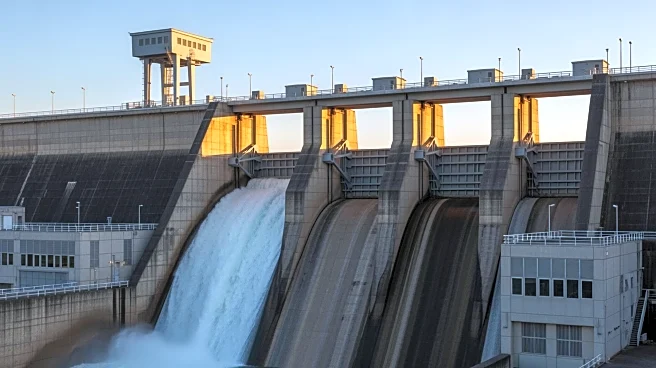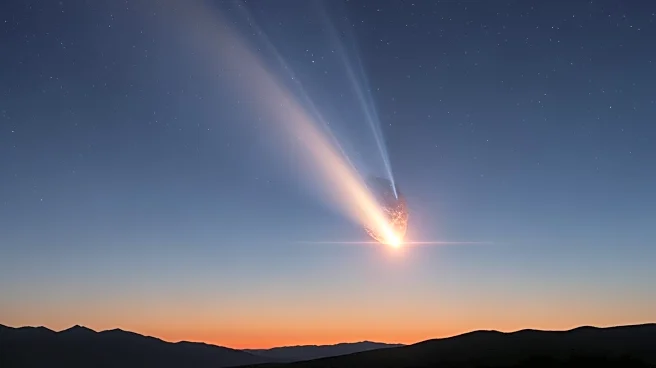What's Happening?
Ecuador's government has revoked the environmental license for the Loma Larga gold project, operated by Canadian company DPM Metals, due to environmental and public health concerns. The decision was influenced by opposition from residents and local authorities in Azuay province, who argue that the project threatens the Quimsacocha water reserve, a crucial source of drinking and irrigation water. The Environment and Energy Ministry stated that the revocation aligns with the government's commitment to protecting natural ecosystems and community well-being. Cuenca Mayor Cristian Zamora, a vocal opponent, praised the decision as a victory for local communities. DPM Metals, which acquired the project in 2021, has not commented on the decision. The project was valued at $419 million and expected to produce 200,000 ounces of gold annually in its first five years.
Why It's Important?
The revocation of the environmental license for the Loma Larga gold project highlights the growing tension between economic development and environmental conservation. This decision underscores the importance of sustainable practices in mining, especially in regions where natural resources are vital for local communities. The move could set a precedent for other countries facing similar conflicts between mining interests and environmental protection. For Ecuador, this decision may impact its mining industry, which is a significant contributor to the economy, but also faces increasing legal challenges and local resistance. The outcome may influence future foreign investments in Ecuador's mining sector, as companies may reconsider the risks associated with environmental and community opposition.
What's Next?
Following the revocation, DPM Metals may seek legal recourse or attempt to negotiate with the Ecuadorian government to reinstate the license. The company might also explore alternative projects or regions with fewer environmental and community challenges. For the Ecuadorian government, this decision could lead to increased scrutiny of other mining projects, potentially resulting in more stringent environmental regulations. Local communities and environmental groups may feel empowered to continue advocating for the protection of natural resources, potentially influencing future policy decisions. The situation may also prompt other mining companies to enhance their environmental management practices to avoid similar conflicts.
Beyond the Headlines
The revocation of the Loma Larga project's license raises broader questions about the balance between economic growth and environmental sustainability. It highlights the ethical considerations of prioritizing short-term economic gains over long-term environmental health. The decision may also reflect a shift in public policy towards more sustainable development models, which could influence global mining practices. Additionally, the case underscores the importance of community involvement in decision-making processes, as local opposition played a crucial role in the government's decision. This development could inspire other communities worldwide to advocate for their environmental rights.








